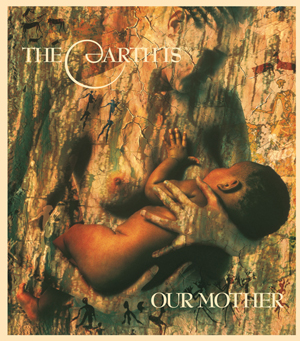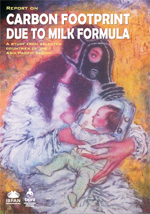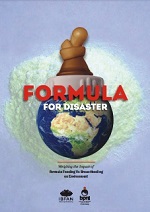|
||||||
| CLIMATE CHANGE AND HEALTH – What on Earth has Infant Feeding got to do with Climate Change? | ||||||
|
||||||
|
||||||
IBFAN Submission on Children’s Rights and the Environment: |
||||||
| The UN Committee on the Convention on the Rights of the Child is holding a ​ Day of General Discussion on children’s rights in relation to climate change as well as environmental toxicants: http://www.ohchr.org/EN/HRBodies/CRC/Pages/Discussion2016.aspx
IBFAN’s Written Submission in preparation for this Day of General Discussion explains that every child’s right to the enjoyment of the highest attainable standard of health constitutes an inclusive right that extends to the right to a safe, clean, healthy and sustainable environment. Read more about the negative impact on children’s health and development caused by environmental degradation and pollution as well as by global warming and climate change: IBFAN Submission on Children’s Rights and the Environment​ |
||||||
‘Tiny Feet, Large Footprint’The title of the article by Dutch Journalist Merel van GOOR den Held neatly encapsulates the evidence she presents that ‘A baby has tiny feet but infant formula leaves a large footprint.’ Her article, published in La Leche League’s Breastfeeding Today, examines how formula feeding increases carbon emissions and depletes scarce resources such as water, and cites IBFAN’s report Formula for Disaster. This article is now available in Spanish:
|
||||||
Action Alert​Campaigning for action on climate changeIn December 2015 the United Nations Climate Change Conference will take place in Paris, France. The objective of the 2015 Conference is to achieve a legally binding and universal agreement on climate, from all nations of the world. Time is running out for the health and even the survival of our planet and all of its inhabitants, wildlife and humans. It is critical that decision makers are informed about and able to take action on each and every factor contributing to climate change, to global warming and environmental degradation. These include increased carbon emissions, depletion of water resources, pollution of our environment. Formula feeding contributes to all of these factors. Breastfeeding places none of these burdens on our Earth and instead safeguards the health of mothers, babies and our planet. ( The UN CCC is also called COP21 because it represents the 21st session of the Conference of Parties, COP, to the UN Framework Convention on Climate Change, the UNFCCC. Another name is the CMP11, or the 11th session of the Meeting of the Parties, CMP, to the 1997 Kyoto Protocol. ) Read more…. |
||||||
|
Submission to the OHCHR Study on Climate Change and the Right to Health, October 2015
Infants and young children are the first victims of environmental degradation and global warming. Even the healthy development of the foetus during intrauterine life can be compromised by the impact of pollution and climate change. Optimal breastfeeding practices are crucial as they constitute the first step towards protecting human health, short- and long-term.Download |
||||||
| IBFAN’s statement about climate and health during the 136th session of the Executive Board of the World Health Organization , January 2015 Download | ||||||
| About the Rio+20 Conference | ||||||





